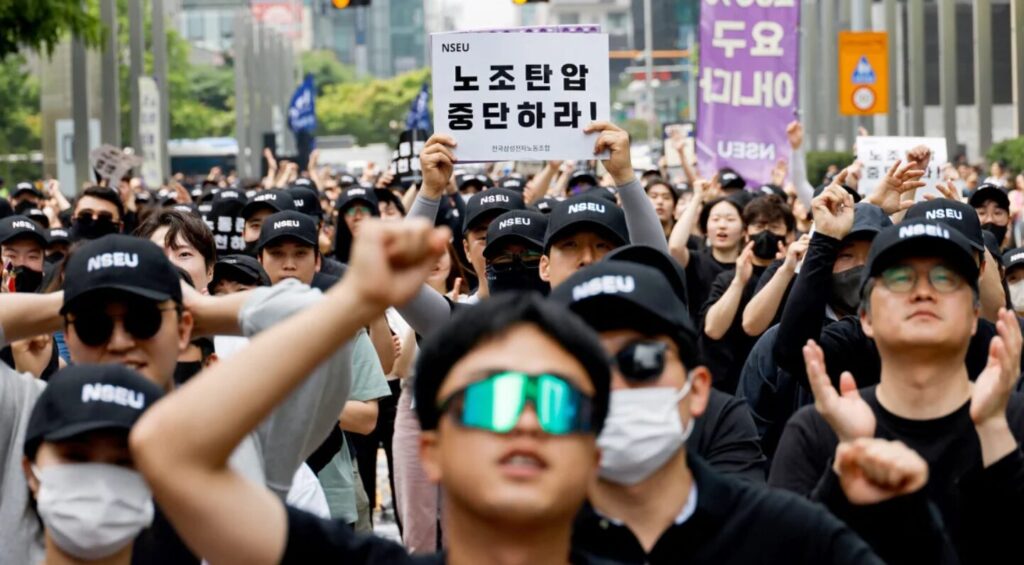|
Getting your Trinity Audio player ready...
|
Foreign Sell-Off Raises Questions About Market Stability
The sell-off of Samsung shares by foreign investors has raised concerns over market stability and future growth prospects for South Korea’s largest conglomerate. With foreign ownership playing a pivotal role in the stock’s volatility, the recent sharp decline in ownership underscores the potential for further downside risk.
Analysts have noted that the broader global macroeconomic environment, coupled with the semiconductor industry’s cyclical downturn, has contributed to investor skepticism. The US-China tech war, inflationary pressures, and rising interest rates are factors that continue to weigh on the semiconductor industry, leading foreign investors to reduce their exposure to major chip manufacturers like Samsung Electronics.
What’s Next for Samsung Electronics?
Despite the ongoing sell-off and weaker-than-expected earnings, Samsung remains a dominant player in the global semiconductor market, with significant investments in research and development (R&D) and cutting-edge technologies such as AI, 5G, and advanced chip manufacturing. As Samsung navigates these headwinds, the company is likely to lean on its long-term strategy of innovation and diversification to maintain its competitive edge.
However, the outlook for the near term remains uncertain. Industry experts have pointed out that the semiconductor sector may take time to recover from its current slump, and market sentiment is unlikely to improve until global economic conditions stabilize.
Samsung Electronics’ ability to rebound may hinge on a number of key factors, including an eventual recovery in demand for memory chips and other electronic components, geopolitical developments, and the company’s execution of its long-term growth strategy.
Conclusion: A Test of Resilience Amid Foreign Sell-Off
The steep decline in Samsung Electronics‘ market cap and the sustained foreign sell-off mark a challenging period for South Korea’s largest chipmaker. With weaker earnings and external pressures continuing to loom large, Samsung’s leadership faces a critical test of its resilience in navigating an increasingly competitive and volatile semiconductor landscape.
Meanwhile, the contrasting fortunes of SK hynix serve as a reminder that not all companies are equally vulnerable to the broader industry downturn. For investors and industry watchers, the next few quarters will be crucial in determining whether Samsung Electronics can regain its footing or whether the sell-off is a precursor to deeper structural challenges in the semiconductor market.
